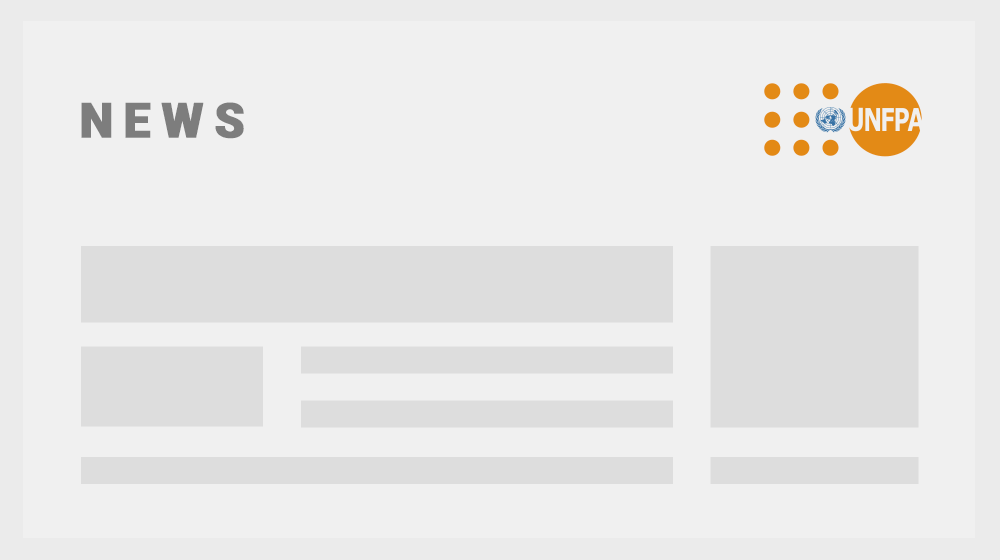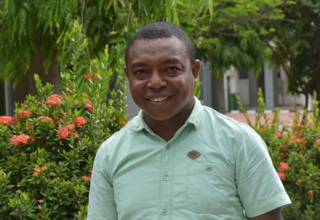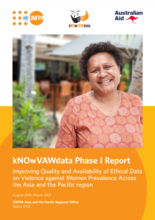UNFPA, the United Nations Population Fund, is encouraged by the progress being made on a global programme that seeks to improve the quality of, and access to, essential services that respond to the needs of women and girls subjected to violence.
UNFPA and UN Women, in partnership with WHO, UNDP and UNODC, and with the support of the governments of Australia and Spain, have developed an Essential Services Package -- a set of global standards on health, justice, social services and coordination.
The five-year (2013-2018) Joint Global Programme on Essential Services for Women and Girls Subject to Violence, now at its halfway mark, has worked to reach international consensus on standards and guidelines for delivering quality essential services, providing technical advice to implement them, and building the capacity of service providers to deliver them.
UNFPA and its partners seek to ensure that the Essential Services Programme fills the gap between international commitments and country-level activities for responding to gender-based violence. It assists countries in fulfilling their international obligations to provide quality essential services, as well as increase access to services for women and girls irrespective of where they live.
“While gender-based violence affects women and men, girls and boys, both scientific and anecdotal evidence suggests that women and girls – especially adolescent girls – are not only at highest risk of and primary targets for gender-based violence, but also suffer the gravest consequences,” said UNFPA Executive Director Dr. Babatunde Osotimehin at the time of launching the programme. “As a result of gender discrimination and lower socio-economic status, women and girls have fewer options and resources to avoid or escape abusive situations and to seek justice. That is why the Essential Services Programme is so important.”
Violence against women and girls has significant consequences on the well-being, health, rights and safety of women and girls, as well as on educational outcomes, productivity and public policies. Despite the extensive work done by women’s organisations, governments and other partners, many women and girls who are subjected to violence still lack access to quality essential services for their safety, health and access to justice.
The Joint Essential Services Programme is critical because it tackles the continuum of violence and the key entry-points to address it – health, justice, social services – alongside the necessary coordination mechanisms.
The gap between prevalence, reporting, help-seeking – and justice and reparations – remains all too wide. Lack of quality services further harms women and prevents recovery – and the barriers include the poor quality and limited availability of services, lack of awareness, lack of trust in the help and safety services can offer, and critically, the shame and stigma that goes with seeking help.
The Joint Programme is about setting normative standards at the global level, including through the SDGs, and developing capacity to operationalize them through national level policies and interventions.
It also builds on the expertise and comparative advantage of the different UN agencies involved – WHO’s work on settings normative standards for health sector standards, UNFPA’s support on operationalizing the health sector response to violence against women and girls, UN Women’s efforts on establishing the normative, legislative and policy frameworks, and UNDP and UNODC on working with the justice and policing sectors.
"International Women's Day is a good opportunity for us to reiterate that unless we address the regional and global crisis of violence against women and girls -- and make no mistake, it is a crisis -- we cannot hope to achieve genuine gender equality, a Planet 50-50 by 2030," said Ingrid FitzGerald, Regional Gender Adviser, UNFPA Asia-Pacific.
"The legacy and mandate embodied in the ICPD Programme of Action and other international commitments also give UNFPA added impetus and responsibility to work on this issue. The Sustainable Development Goals and 2030 Agenda allow us -- and all our UN, government and civil society partners -- to renew and strengthen our commitment to work towards a world free of gender-based violence."




